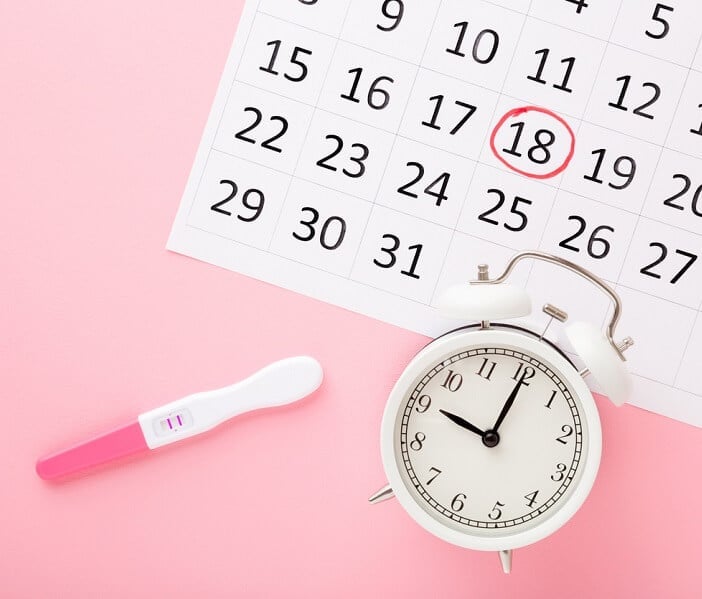5 mins read
Can Your Diet Affect Your Fertility?

- Diet And Fertility
- Impact of Infertility in the UK
- Is My Diet Affecting My Fertility?
- Folic Acid (folate)
Despite the fact food and nutrition have been researched for centuries, nutritional science is a relatively young branch of the scientific umbrella. Advances are being made at great strides, and diets, foods, supplements and nutrients are all being used to aid our general wellbeing.
Diet And Fertility
These are also being used for medical intervention. An area which has growing scientific evidence relating to diet is pregnancy and fertility.
The evidence for a healthy and varied diet both before and after conception is vast. Pregnancy is an important part of the human life cycle and the nutrients which enter the body can affect the health of two individuals; mother and baby.
“We are constantly being told by the press and social media to eat well, but the benefits of a healthy diet really do come into play if you have fertility issues,” says Dr Suvir Venkataraman BEng (Hons), PhD and general manager at the Harley Street Fertility Clinic. “Eating a balanced diet full of essential nutrients and minerals will make you healthier, improve energy and stress levels and will help ensure your body and immune system are strong when trying to get pregnant,”.
Impact of Infertility in the UK
Infertility affects approximately 3.5 million people in the UK and around 1 in 7 couples have difficulty conceiving. There are several risk factors affecting fertility which are related to diet and lifestyle, including:
- Your weight
- How much alcohol you drink
Interestingly, being underweight can be as detrimental to your fertility as being overweight. Being too far either side of your perfect weight can greatly affect your menstrual cycle. You may find your periods are irregular or they may stop altogether, either way, this can affect your chances of getting pregnant.
Alcohol should be avoided if you are trying to conceive or are already pregnant. For women, the avoidance of alcohol is believed to be the safest approach. While men should also limit their alcohol intake to no more than 14 units per week. Excessive alcohol intake can reduce sperm quality and interfere with male reproductive hormone profiles.
Is My Diet Affecting My Fertility?
There are several ways your diet could be affecting your fertility, from weight issues and hormone imbalances to fat and energy storage.
“There are endless old wives’ tales and internet myths around fertility boosting foods but don’t believe the hype,” explains Dr Venkataraman. “While you don’t need to go on a special diet and cut everything out, it’s really important to eat a variety of fresh fruit and vegetables, as well as lean proteins, whole grains, foods rich in antioxidants and essential fatty acids (oily fish is a good source) to ensure you get the right balance of nutrients.”
High Fat Diet and Body Weight
Obesity is an increasing problem in women of reproductive age. Body weight is known to be a major factor in causing infertility problems.
Excess dietary fat is a major cause of obesity and is associated with damage to female sex hormone functionality and fertility. Increased insulin production is often also associated with obesity. Insulin is released by the pancreas when blood sugar levels rise, but insulin is also important for the regulation of sex hormone production. For example, obese females usually have an increased production of insulin which can increase the production of androgens – male hormones like testosterone – and affect the menstrual activity as well as the function of the ovaries. Therefore, both events can affect female fertility.
Another protein which has been linked with fertility is leptin. Leptin has an important role in controlling food intake and energy expenditure. The hormone helps to stop hunger by regulating our energy balance and is released from fat cells found in adipose tissue.
When a high-fat diet is consumed, elevated leptin levels usually arise and this can affect female reproductive function.
As nutritional science is an evolving and relatively new subject, there is limited data available from human studies. However, the amount of fat in the diet can affect conception by causing changes to the length of the menstrual cycle as well as altering hormone levels.
A high-fat diet, with or without obesity, should be avoided in reproductive age females as it can compromise fertility.
Folic Acid (folate)
Folic acid is an important nutrient both pre-conception and during fertility. Women are advised to supplement their diet with 400 µg of folic acid until the 12th week of pregnancy to prevent neural tube defects such as spina bifida, but it has a protective effect against infertility, too.
In one study, women who were supplemented with B vitamins had a decreased risk of ovulatory infertility. In fact, those who were supplemented with multivitamins had around 1/3 lower risk compared to those who were not supplemented. Folic acid was believed to be the contributing factor to this protective effect.
Eating healthily is key to boosting your chances of conceiving as this will improve your health, but will also benefit the quality of your eggs. Dr Ventakaraman says,
“If you have a sweet tooth, ditch the chocolate and instead opt for berries because they are packed with the antioxidants, that protect your body from cell damage and ageing, and this includes your eggs. Blend organic strawberries and raspberries, banana, and spinach and you will get a much-needed antioxidant and iron boost before you leave the house.”
How To Test Your Fertility
You can check to see if your hormones are fluctuating as expected across your entire menstrual cycle with our advanced female hormone blood test, MyFORM™.
Your hormones work in an intricate network across your menstrual cycle with levels of the control hormones – follicle-stimulating hormone (FSH) and luteinising hormone (LH) – rising and falling to trigger your ovarian response hormones – oestrogen and progesterone. Measuring all 4 key hormones will help give you insight into any hormone imbalance that may be affecting fertility. The test is ideal for women who are planning to start a family who want to know if their hormones are fluctuating as expected for their age. Suitable for women with a natural menstrual cycle who are not using any form of hormonal contraception.

Article references
-
Chavarro, J, E et al. (2008). Use of Multivitamins, Intake of B Vitamins, and Risk of Ovulatory Infertility. Fertility and Sterility: 89(3), pp 668-676.
-
Gaskins, A, J and Chavarro, J, E. (2018). Diet and Fertility: A Review. America Journal of Obstetrics and Gynaecology: 218(4), pp 379-389.
-
Hohos, N, M and Skaznik-Wikiel, M, E. (2017). High-Fat Diet and Female Fertility. Endocrinology: 158(8), pp 2407-2419.
-
Karmon, A, E et al. (2016). Male Caffeine and Alcohol Intake in Relation to Semen Parameters and In Vitro Fertilization Outcomes Among Fertility Patients. Andrology: 5, pp 354-361.
-
Shaznik-Wikiel, M, E., Polotsky, A, J and McManaman, J, L. (2015). High-Fat Diet Causes Compromised Fertility and Increased Pro-Inflammatory Cytokines Independent of Obesity. Fertility and Sterility: 104(3), pp e104
This information has been medically reviewed by Dr Thom Phillips
Thom works in NHS general practice and has a decade of experience working in both male and female elite sport. He has a background in exercise physiology and has published research into fatigue biomarkers.

Dr Thom Phillips
Head of Clinical Services
Related articles
Like this article? Here are some more based on similar topics.



